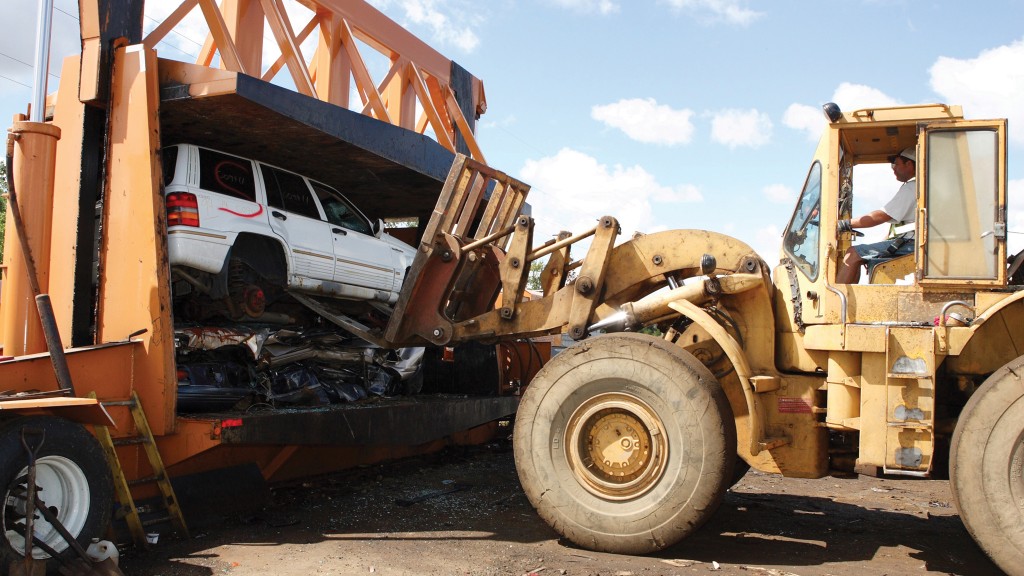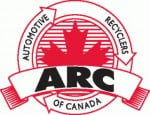Commentary: Breaking down the good and bad of auto scrappage programs

Auto recyclers in Canada are neutral on whether organized vehicle scrappage programmes are good or bad for our industry. It all depends on their design and execution and whether auto recyclers themselves have been involved in any phase of the design or execution.
Let's start with some definitions - I deem a "vehicle scrappage programme" to be an organized plan to remove older vehicles from circulation by providing an incentive to the last owner of the vehicle to turn in their vehicle before its natural end of life.
Programmes around the world vary in determining what vehicles may or may not be eligible, and many are also silent on who processes or how they process those end-of-life vehicles (ELVs). These programmes are oftentimes supported by governments and/or auto manufacturers.
The motivation to initiate a scrappage programme can be multi-faceted: increase the turnover rate of the vehicle fleet to improve emissions, fuel economy or safety; stimulate traffic to new car dealers (rarely are incentives offered for used vehicles); encourage other forms of transportation rather than internal combustion engine-powered vehicles (in these cases, the incentives are rarely cash or vehicle discounts); encourage the purchase of low carbon vehicles (ie. electrification), or supply an inventory of parts vehicles for auto recyclers to re-use or recycle (OK, just joking on that last one, as I have yet to see anyone fund a scrappage incentive to directly help auto recyclers).
To that last point though, Canada has run a vehicle scrappage programme - ‘Retire Your Ride', which has been both praised and criticised. We, as professional auto recyclers, deemed it successful as Environment Canada consulted with ARC (Automotive Recyclers of Canada)very early in the development of the concept, and they made sure that every vehicle turned in was permanently and properly recycled and retired.
During Canada's initial scrappage effort, auto recyclers acquired inventory to re-use and recycle. The incentive was modest ($300 Canadian) so as not to be too disruptive of the efficient flow of ELVs. The programme lasted over two years, so there was plenty of time for adjustments, and all participating auto recyclers were trained and audited to the Canadian Auto Recyclers Environmental Code (CAREC). Vehicles were retired responsibly AND the industry received a boost of professionalism and overall awareness as a responsible, engaged industry.
Not all scrappage schemes are as robust and well thought out though.
In 2009, a programme was launched in the USA called Cash for Clunkers, attempting to kick start new cars sales and targeting older inefficient models. The budget was $3 billion dollars and ran for eight weeks with an average allowance of between $2500 and $4500. A very costly experiment that netted very few environmental improvements and in doing so interrupted the parts sales and repair markets dramatically. Auto recyclers were not involved in any of the discussions, and those who wanted to be involved were dictated how to recycle a vehicle. This is why politicians should NOT be in charge of programmes they do not understand.
Vehicle scrappage programmes have a role to play in ensuring all ELVs are processed and documented properly. They can kickstart the maturation of an industry, like what happened in Canada. They can reward drivers with a nudge towards better behaviour, and better decision making for a sustainable transportation sector. They can achieve environmental AND economic benefits for all participants.
But they can also overheat the retirement of still valuable vehicles, undercutting the repair sector (and auto recyclers) that thrive on keeping vehicles on the road as long as economically and safely reasonable; and removing low cost older vehicles that many parts of society still need to meet their mobility needs.
The best vehicle scrappage programme designs attempt to take a diversity of long term views into consideration in their development and deployment. The worst try to hustle a few short-term sales without regard to the long term sustainability of our planet. We can all choose better.
Wally Dingman is owner of Caughill Auto Wreckers in Niagara-on-the-Lake, Ontario, and Chairman of Automotive Recyclers of Canada (ARC).
This article was originally published in Auto Recycling World, with the post Vehicle Scrappage Programmes - Boon or Boondoggle? appearing first on the website of the Automotive Recyclers of Canada (ARC).



